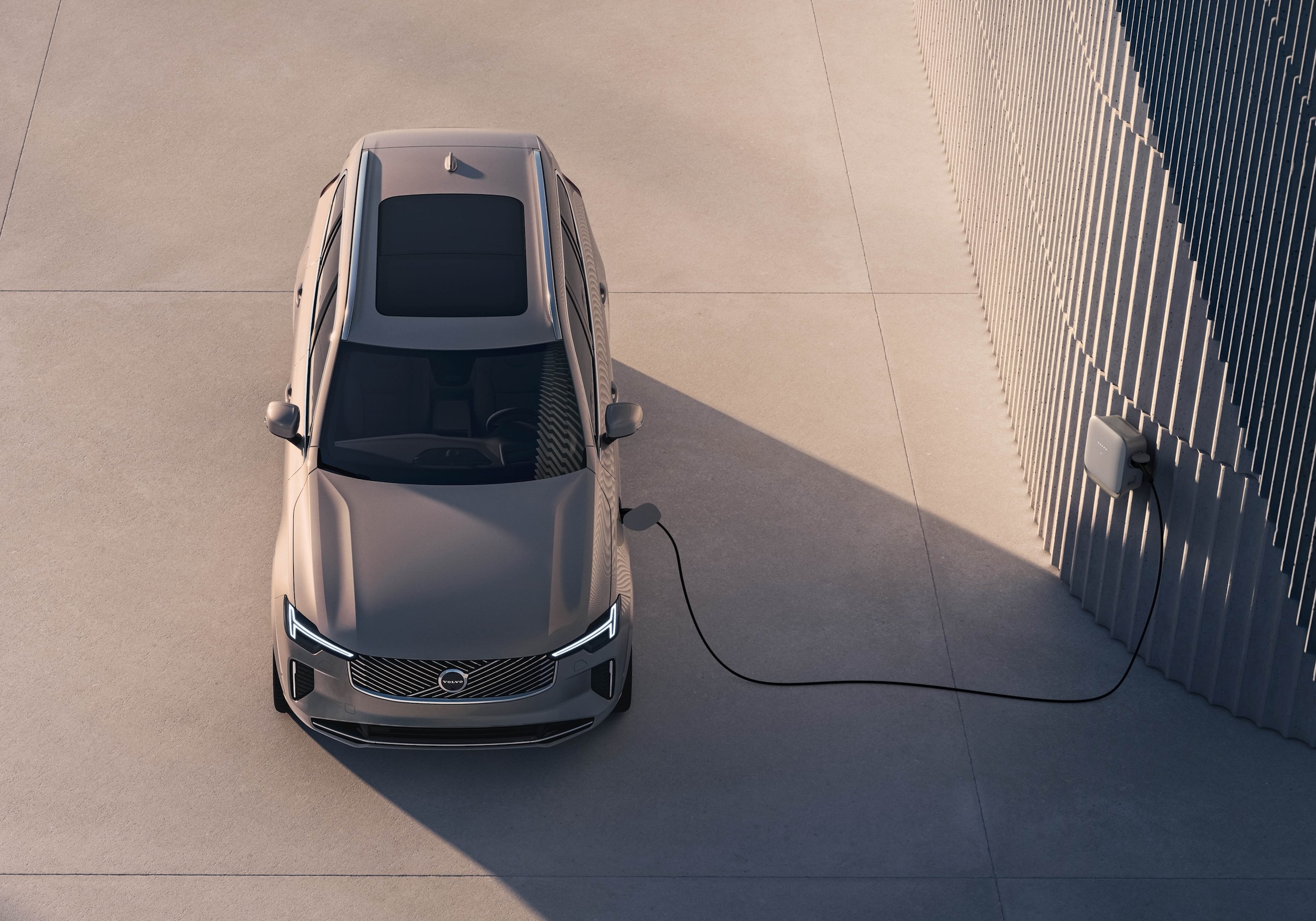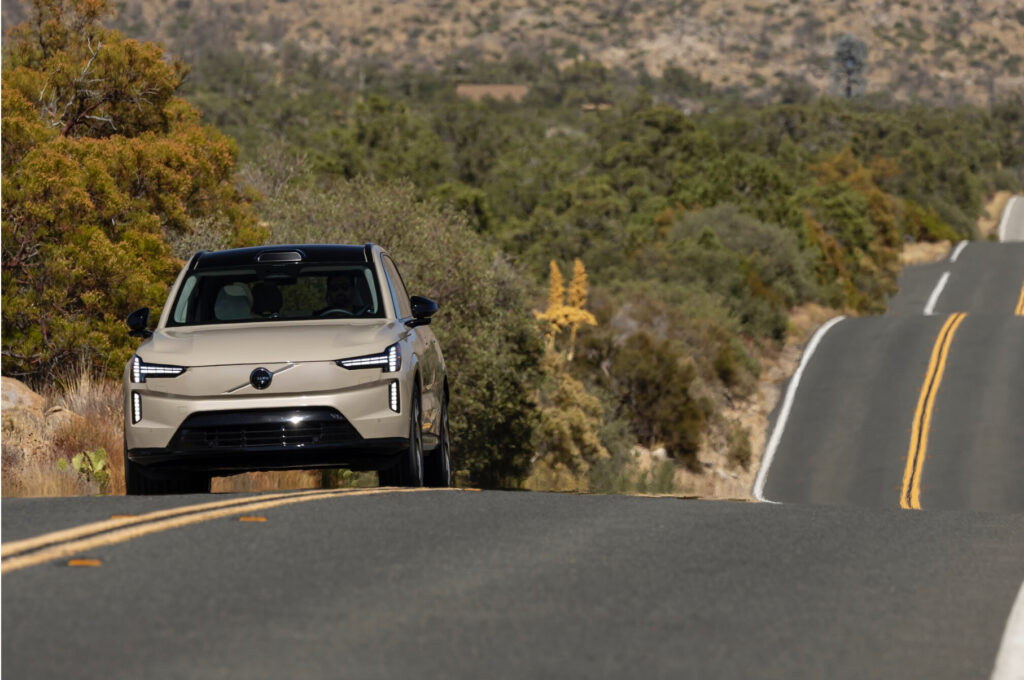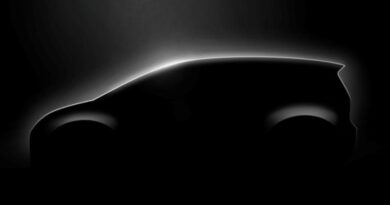Volvo hits the pause button on EVs! No longer committed to going fully electric in Australia by 2026
Volvo’s industry-leading commitment to go fully electric in Australia by 2026 is no more.
While the Swedish luxury brand says it could feasibly still hit the target, it now expects to continue selling mild hybrids and plug-in hybrids beyond the self-imposed ICE deadline announced in 2022.
“We are fully committed to the strategy [of going fully electric],” Volvo Car Australia managing director Stephen Connor told EV Central.
READ MORE: 2025 Volvo EX90 review: Does this seven-seat electric SUV have what it takes to tempt buyers out of a BMW X5 or Audi Q7?
READ MORE: Boot it! 2025 Volvo ES90 sedan teased as Swedish brand readies its BMW i5 and Tesla Model S fighter
READ MORE: 2024 Volvo EX30 review: Bargain prestige small SUV shines across the board as a genuine rival for Tesla Model Y and BYD Atto 3
“But what we’ve come to realise pragmatically is can we achieve it by 2026?

“Even if the factory produce all the cars we are coming up with and they can deliver them to our shorelines we are going to struggle to get there is the honest answer.”
Connor committed VCA to going exclusively EV in October 2022, following formal confirmation by parent Volvo in 2021 that it intended to go EV-only by 2030.
But in early September 2024 Volvo global chief Jim Rowan announced a pause and confirmed mild hybrids and plug-in hybrid EVs (PHEVs) would remain in its line-up post-2030, citing “changing market conditions and customer demands”.
Volvo’s global wind-back of its EV transition timing was echoed by other brands in recent time as sales of electric cars softened.

But the volatile market conditions had forced a change, he said.
“There’s no point us going fully electric if our consumers aren’t ready for it.
“We are going to take a pragmatic approach on this,” he added. “I have got no doubt that we will be fully electric earlier than [Volvo] global and I have got no doubt we will be fully electric sooner than most car manufacturers in Australia.
“The sentiment and strategy is still the right strategy; being fully electric is still the right thing to do but the target of being fully electric by a certain point is the challenging one.
“I’ve got to take the pragmatic view in the same way we [Volvo globally] are doing in the 2030 announcement.
“The pragmatic view has got to be based off consumer sentiment, it’s got to be based off product lifecycle and it’s also got to be based off profitability of us and our dealer network.”

Along with the scrapped deadline, Connor also revised VCA’s 2025 EV sales share down from 80 to 70 percent of total volume. A longer term annual sales EV sales aspiration of 20,000 was also reduced to 15,000, which could “potentially” include mild hybrids and PHEVs.
The first palpable evidence of VCA’s pause will be the launch of the updated XC90 large luxury SUV in January 2025 as both a mild hybrid and plug-in hybrid.
“The XC90 was never part of our plan in Australia and some other markets,” Connor revealed. “So we are agile enough to change our stance and our operational plan.”
He confirmed other models may gain an extension of their local lifespan as well.
“We take the cars that we think are the right cars that we think will be the right spec for our marketplace,” Connor said.
Volvo currently sells the C40, EX30 and XC40 EVs in Australia. It also sells the XC40 as a mild hybrid as well as the S60 sedan and V60 Cross Country wagon. The XC60 and XC90 SUVs are sold as mild and plug-in hybrids.
Connor suggested a transition that would probably see Volvo first drop mild hybrids, leaving PHEV as a transition technology before the eventual full adoption of EVs.

“That’s how I perceive the market going in Australia,” Connor said.
“The PHEV is a great step and I think you will see lots of people migrate to PHEVs and their next car will be an EV.”
The lifting of the ICE deadline will be greeted positively by much of the Volvo dealer network, which has been concerned about its timing, the significant investments required and slumping Volvo sales off 20.9 percent year-on-year.
“The dealers will be receptive to this, I think more importantly they will like we are listening to the market and consumers,” Connor said.




